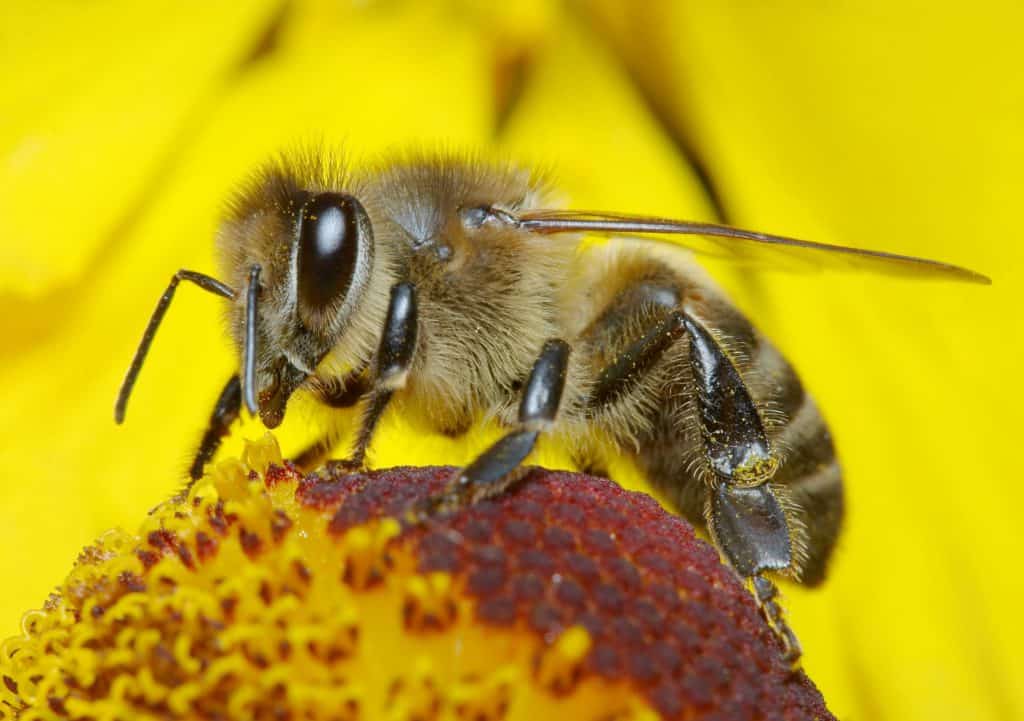
Bees — No one likes them buzzing around, disrupting outdoor meals and generally being a bother. But since they are a key element in the pollination of the plant’s everyone loves to eat and enjoy, their protection must remain of utmost importance to all people on this earth. Without bees, the ability to continue large-scale food production activities will grind to a halt, leaving many without adequate sustenance. Tragically, pesticides used to protect the growth of crops worldwide are actively decimating bee populations of all kinds. Without intervention, the bee colonies will fail to thrive and eventually die off, causing human populations to struggle to survive.
Types of Beneficial Bees
Everyone recognizes honeybees as beneficial and worth protecting, but what about the other types of
bees that are diligently working the fields? Other types of bees that regularly pollenate plants include:
●Carpenter Bees
●Bumblebees
●Blue Orchard Bees
●Cucurbit Bees
●Solitary Mason Bees
While some of the bees pollinate all crops without hesitation, some focus on one type of plant.
Therefore, it is important to protect all bees from pesticides and other detrimental elements to keep their populations healthy and thriving.
Effects of Pesticides on Bee Populations
The move from natural pesticides to manmade formulas has devastated bee populations in treated areas. The highly effective pesticides are often integrated into the plant structure, making it impossible for bees to avoid exposure and continue their pollination activities. When bees come into contact with the pesticides, they cannot reproduce to maintain their numbers, causing the colonies to eventually collapse. The bees may also suffer from agitation, vomiting, and paralysis with continued exposure.
The pesticide products sprayed directly on crops have an even bigger impact on the health of bee populations. Direct exposure to the pesticides can cause the bees to become disoriented and die in the fields, which results in their failure to complete their pollination activities and life cycle.
Potential Problems from Bee Decimation
Without bees pollinating the crops, produce yields will slowly decrease in size and condition until farmers cannot keep up with demand required to sustain the growing human population. Furthermore, a
decrease in production yields will have a direct impact on the livestock industry, causing further decreases in food output by farmers worldwide. Even household pets stand to suffer the effects of continued bee death and destruction due to the widespread use of harmful pesticides.
Farmers wisely tap into the power of effective natural fertilizer products to boost harvests, but that will fail to offset the lack of pollination as the problem continues to worsen. A different approach to the control of pests in food production fields will have to arrive on the scene soon to save the bees, and those they support, from total decimation. Until bees are protected from the application of pesticides,
their kill numbers could continue to hit 1,000 bees per day, causing total colony collapse in the hardest hit areas.
How to Best Control Bees without Harming Their Colonies
The control of pests and application of strong organic fertilizer products are necessary elements in continually boosting harvest yields in the food production field. An adjustment to the current approach can help protect bee colonies from pesticide exposure without impacting harvest sizes across the board.
Unfortunately, many farmers continue to cast a wide net in removing pests by simply spraying the cheapest control chemicals across their fields. Thankfully, pest control experts can help farmers, and people all over the world to control insects in their fields while protecting bees from pesticide exposure.
The experts at Richland Pest and Bee can help remove problematic insects and other pests without
impacting the health of bee colonies everywhere. Contact their team today to learn more about their
approach to commercial and residential pest control.

